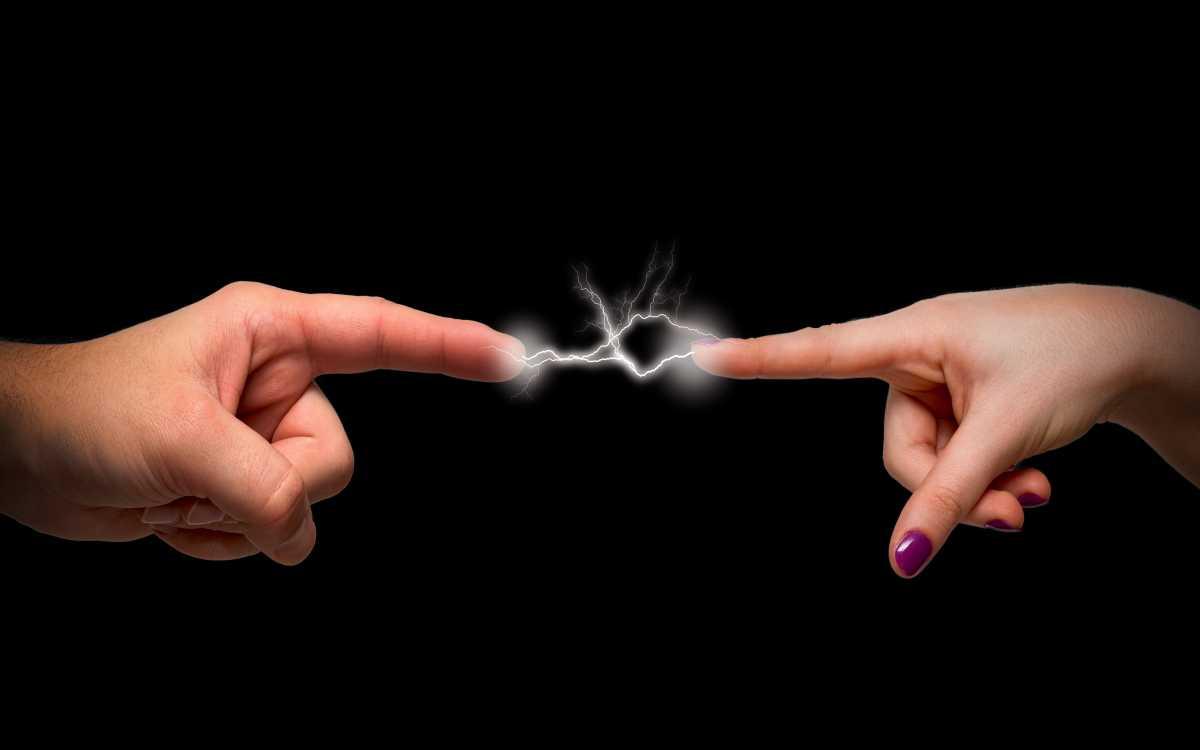The intense surge of emotions and experiences that illuminate your world as you enter into a new romantic relationship can be an exhilarating experience akin to riding a thrilling rollercoaster. This potent combination of joy, anticipation, and anxiety is often referred to as new relationship energy, a term that encapsulates the intoxicating cocktail of feelings experienced during the early stages of a budding relationship.
What is New Relationship Energy?
In the world of relationship psychology, new relationship energy (NRE) is a term used to describe the intense, often euphoric emotions that accompany the formative phase of a romantic relationship. This unique phenomenon is characterized by heightened sexual and emotional fervor, an obsessive preoccupation with the new partner, and an overwhelming sense of optimism about the potential of the relationship.

The Underlying Chemistry of New Relationship Energy
New relationship energy isn’t just a psychological phenomenon; it has a biological basis too. When we enter a new relationship, our brains release a flood of neurochemicals such as dopamine and oxytocin, which are responsible for feelings of pleasure, relaxation, and bonding.
At the same time, cortisol levels tend to rise, leading to increased anxiety and obsession, while serotonin levels may decrease, contributing to the emotional rollercoaster that is often associated with NRE. This chemical cocktail creates a heady mix of pleasure and anxiety, making NRE an intense and often overwhelming experience.
Distinguishing Between Core Emotions and Anxiety
In the throes of NRE, it’s common to experience a blend of core emotions and anxiety. Understanding the difference between these two types of emotions is key to navigating the complexities of new relationship energy effectively.
Core Emotions
Core emotions are adaptive and help us understand our needs. They include fear, anger, grief, joy, excitement, disgust, and sexual excitement. These emotions are a crucial part of our emotional health, helping us navigate and respond to our environment.
During the early stages of a relationship, these core emotions are often amplified, leading to a heightened sense of excitement, sexual arousal, and joy. These positive emotions form the pleasurable aspect of NRE.
Related Article: Anxiety Treatment Methods
Navigating the highs and lows of NRE involves managing anxiety and understanding our core emotions. Here are a few strategies to help you do this:
Regulating Anxiety
Anxiety regulation techniques are effective in managing the nervous energy associated with NRE. Some effective strategies include deep breathing exercises, grounding techniques, and positive self-talk.
Exploring Core Emotions
Getting in touch with your core emotions helps you understand and navigate your emotions during NRE. Pay attention to where you feel these emotions in your body and try to connect with them. Be aware of any anxious thoughts that arise and allow them to pass without judgment.
Related Article: Center For Emotional Health
Using Fantasy to Explore Core Emotions
Fantasizing about your new partner is a healthy way to explore your core emotions. Whether you’re fantasizing about a romantic date or a passionate encounter, these fantasies will help you connect with your feelings of excitement and sexual desire. It’s important to remain aware of any anxiety that may arise and to differentiate between pleasurable fantasies and anxiety-driven thoughts.

The Role of Conscious Relating in NRE
Conscious relating is a concept that involves bringing awareness and intentionality to all our relationships. This approach is especially helpful in channeling new relationship energy. By being mindful of our emotions, needs, and patterns, we can make conscious decisions about our relationships and manage the intensity of NRE more effectively.
Managing Changes in Existing Relationships
If you are in a non-monogamous relationship or date more than one person, the emergence of NRE may require changes in your current relationships. It is crucial to communicate these changes honestly and respectfully, taking into account the feelings and needs of all parties involved. Striking a balance between getting caught up in the excitement of NRE and maintaining your existing relationships is a delicate task, but with conscious effort it can be achieved.
Embracing the Ebb and Flow of New Relationship Energy
The intensity of NRE will inevitably wane as the relationship matures, and that’s perfectly normal. Rather than clinging to the initial rush of emotions, it’s important to embrace the evolving dynamics of the relationship. By understanding that NRE is a transient phase, we can appreciate the experience for what it is – a unique and exciting chapter in the unfolding story of the relationship.
Experiencing new relationship energy often feels like an exciting emotional rollercoaster. It’s a unique blend of joy, excitement, and anxiety that characterizes the early stages of a romantic relationship. Understanding and navigating this phenomenon requires a degree of self-awareness and emotional literacy.
Make the most of the NRE phase by acknowledging and exploring our core emotions, managing our anxiety, and building conscious relationships. More importantly, ensure that our new relationships develop in a healthy and satisfying way and enrich our lives in the process.